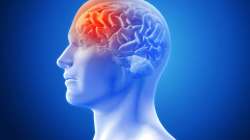Blood clots are a serious medical condition. They are semi-solid masses of blood that are formed inside your body. Clotting is important to prevent excessive bleeding if you are injured or cut. However, when too much clotting occurs, it can be harmful, even deadly. Blood clots, also called deep vein thrombosis most often occur in people who can't move around well or have had recent surgery or injury. It can occur in your arms and legs, heart, brain, and other important parts of the body. Sometimes, it is the major cause of brain stroke. A stroke can be devastating not only for the person who gets one but for the entire family. This unfortunate situation can result in premature death and lifelong disability.
In India, the incidence rate of stroke is estimated to be 119 to 145 per 100,000 people and we see 1.44 to 1.64 million cases of strokes annually. Thus, it is important to know the signs, symptoms and prevention to treat blood clots at the earliest.
There are two different types of clots:
Arterial clots: This type of clot prevents oxygen from reaching vital organs, it can cause a variety of complications like stroke, heart attack, paralysis and severe pain.
Venous clots: These are formed in the veins and can generally dissolve over a period of time.
- Arterial clots in the brain are called strokes and patients with blood clots in their brains can experience problems with their vision or speech, seizures and general weakness.
How to reduce the risk of having blood clots in the brain
Along with blood thinner medications, you can prevent the risk of blood clots by:
- Exercising daily and staying active because it increases blood flow which reduces blood clot risk
- Do not sit for a longer period of time. Ensuring that you move and stretch during long road trips
- Consuming less salt in your diet and balanced food rich in proteins and minerals
- Avoid trauma or injuries and cuts. If you get injured, immediately take medical precautions and advice.
- Eating a diet filled with fresh fruits and vegetables along with healthy nuts, seeds
- Quit smoking and excessive drinking
- Obesity usually causes Blood clotting, so try maintaining healthy body weight, eating a balanced diet and living an active lifestyle.
- Try controlling medical problems such as high blood pressure, and diabetes.
- Try not to take much stress and tension
- Meditate for at least 40-45 minutes, daily
(Disclaimer: Tips and suggestions mentioned in the article are for general information purpose only and should not be taken as professional medical advice)
